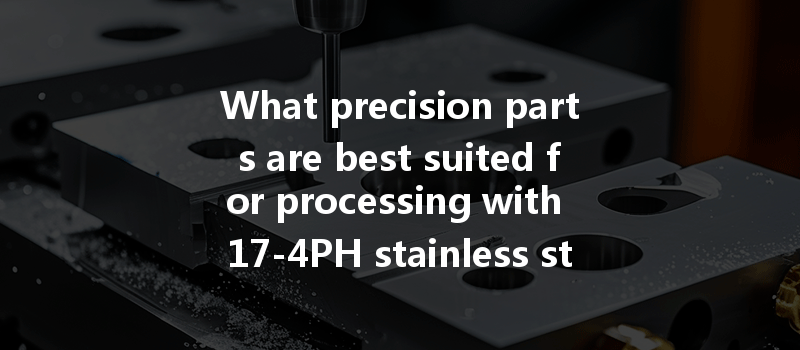Opening: An Intriguing Statistic
Did you know that in the world of metallurgy, 17-4PH stainless steel is revered not just for its impressive strength but also for its corrosion resistance, making it one of the most frequently used materials in critical applications? According to industry data, about 40% of all CNC machined parts in aerospace and medical devices are made from high-performance stainless steels, with 17-4PH being a top contender in those categories due to its unique properties. If you’re in the industry or simply curious about CNC machining, understanding which precision parts are best suited for this remarkable alloy is essential.
—
Understanding 17-4PH Stainless Steel
What is 17-4PH Stainless Steel?
17-4PH, also known as UNS S17400, is a precipitation-hardening stainless steel that combines a rich composition of chromium (around 15-17%), nickel (3-5%), copper (3-5%), to produce exceptional mechanical properties. Its unique structure allows it to undergo significant hardening during the heat treatment process while maintaining excellent corrosion resistance and toughness.
Applications of 17-4PH
The features of 17-4PH make it an ideal material in a wide array of applications:
—
Precision Parts Suitable for CNC Machining with 17-4PH
CNC machining of 17-4PH stainless steel is highly sought after because of its adaptability. Here’s a detailed look at different precision parts and their specifications ideal for CNC processes:
Specifications:
Solution:
Hydraulic components require high strength and fatigue resistance. CNC machining enhances dimensional accuracy while accommodating complex geometries essential in hydraulic applications.
Specifications:
Solution:
The aerospace industry demands strict regulations for safety and performance. CNC machining ensures that aerospace fittings maintain the high precision necessary for regulatory compliance, while 17-4PH ensures resistance to extreme environmental factors.
Specifications:
Solution:
Precision is paramount in medical implants. CNC machining allows manufacturers to create complex shapes and geometric configurations vital for compatibility with human anatomy, while the biocompatibility of 17-4PH minimizes rejection in surgical applications.
Specifications:

Solution:
Parts used in renewable and non-renewable power generation must withstand harsh operating conditions. CNC machining ensures consistent production quality, and the durability of 17-4PH makes it suitable for high-stress applications.
Specifications:
Solution:
Military applications require materials that can withstand extreme conditions. The strength and corrosion resistance of 17-4PH, combined with precision CNC machining, allows for reliable performance under stress.
—
Challenges of CNC Machining 17-4PH Stainless Steel
While 17-4PH offers numerous benefits, machining this alloy presents challenges due to its mechanical characteristics. Below are key challenges and tips to address them:
Challenge: Its hardness can lead to accelerated tool wear, resulting in increased production costs.
Solution:
Challenge: Due to its thermal conductivity characteristics, excessive heat can lead to dimensional inaccuracies and thermal distortion.
Solution:
Challenge: The rigidity of 17-4PH may induce vibrations during machining.
Solution:
—
: The Importance of CNC Processing with 17-4PH Stainless Steel
In summary, understanding which precision parts fit the CNC machining profile for 17-4PH stainless steel is critical for industries reliant on high-performance materials. From hydraulic components to military equipment, the versatility and mechanical capabilities of 17-4PH make it indispensable.
By tackling the challenges of machining this alloy with advanced techniques like tool selection, coolant application, and optimal settings, manufacturers can leverage the benefits of 17-4PH while minimizing costs and maximizing quality.
The insight into selecting the right precision parts and overcoming machining challenges equips engineers and manufacturers with the knowledge needed to innovate and excel in their industries.
Reflecting on the significant impact of CNC technologies in optimizing production processes not only elevates manufacturing standards but also fosters sustainable practices across various sectors. As industries continuously evolve, the relevance of high-performance materials like 17-4PH stainless steel remains central to future advancements.
As you navigate the complexities of precision engineering, remember the importance of adapting to technology and material innovations. Embracing these insights allows for the creation of products that withstand the rigors of modern applications, ensuring safety, efficiency, and durability.
Stay tuned for more insights on CNC machining, and consider how your business can benefit from the unique properties of advanced materials like 17-4PH stainless steel!
Related Posts
- How do the strength and toughness of 6061 aluminum and 5083 aluminum compare in CNC turning applications?
- What are the advantages of using CNC machining for aluminum prototyping compared to traditional manufacturing methods?
- How Can You Avoid Delivery Delays in CNC Processing for Timely Project Completion?






